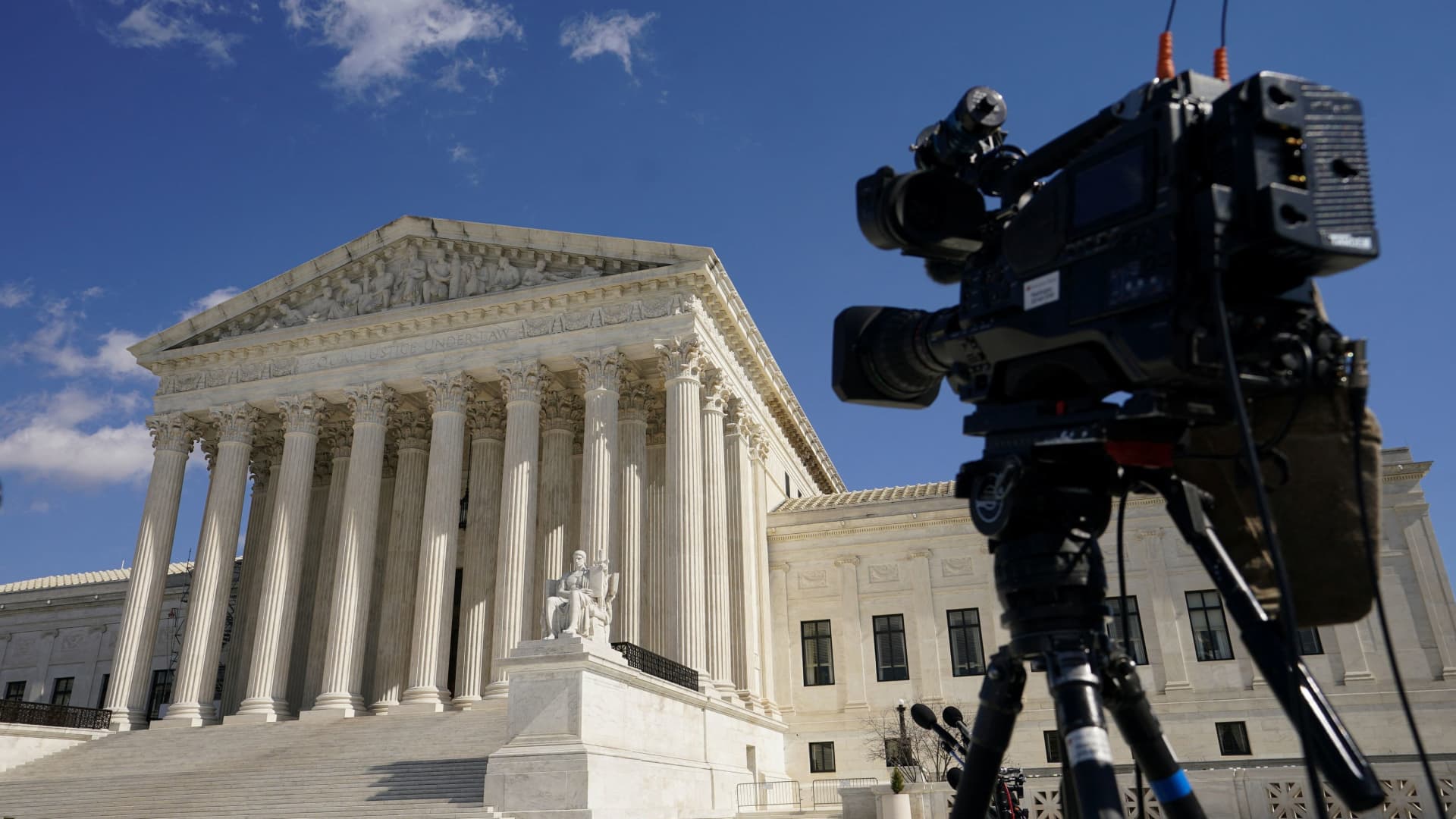Products You May Like
The Supreme Court in a unanimous decision Wednesday ruled that a woman could not use protection under the U.S. bankruptcy code to avoid paying a debt that resulted from fraud by her partner.
The court said that the woman, Kate Bartenwerfer, owed the debt even if she did not know or could not have known about her partner’s fraud in connection with the sale of a home they had remodeled.
The 9-0 ruling written by Justice Amy Coney Barrett underscored a Supreme Court decision in 1885, which found that two partners in a New York wool company were liable for the debt due to the fraudulent claims of a third partner even though they were not themselves “guilty of wrong.”
Barrett dismissed Bartenwefer’s grammatically focused argument that the relevant section of the bankruptcy code, written in a passive voice as “money obtained by fraud,” refers to “money obtained by the individual debtor’s fraud.”
“Innocent people are sometimes held liable for fraud they did not personally commit, and, if they de-
clare bankruptcy, [the bankruptcy code] bars discharge of that debt,” Barrett wrote.
“So it is for Bartenwerfer, and we are sensitive to the hardship she faces,” she wrote.
Justice Sonia Sotomayor, in a concurring opinion joined by Justice Ketanji Brown Jackson, noted that the ruling involves people who acted together in a partnership, not “a situation involving fraud by a person bearing no agency or partnership relationship to the debtor.”
“With that understanding, I join the Court’s opinion,” Sotomayor wrote.
The ruling on Bartenwefer’s case came 18 years after the events that triggered the dispute.
Bartenwefer, and her then-boyfriend David Bartenwefer, jointly bought a house in San Francisco in 2005, and planned to remodel it and sell it for a profit, the ruling noted.
While David hired an architect, engineer, and general contractor, monitored their progress and paid for the work, “Kate, on the other hand, was largely uninvolved,” Barrett wrote.
The house was eventually bought by a man named Kieran Buckley after the Bartenwerfers “attested that
they had disclosed all material facts relating to the property,” Barrett noted.
But Buckley learned that the house had “a leaky roof, defective windows, a missing fire escape, and
permit problems.”
He then sued the couple, claiming he had overpaid for the home based on their misrepresentations of the property.
A jury ruled in his favor, awarding him $200,000 from the Bartenwerfers.
The couple was unable to pay the award or other creditors and filed for protection under Chapter 7 of the bankruptcy code, which normally allows people to void all of their debts.
But “not all debts are dischargeable,” Barrett wrote in her ruling.
“The Code makes several exceptions to the general rule, including the one at issue in this case: Section 523(a)(2)(A) bars the discharge of ‘any debt . . . for money . . . to the extent obtained by . . . false pretenses, a false representation, or actual fraud,'” Barrett wrote.
Buckley challenged the couple’s move to void their debt to him on that ground.
A U.S. Bankruptcy Court judge ruled in his favor, saying “that neither David nor Kate Bartenwerfer could discharge their debt to Buckley,” the opinion by Barrett noted.
“Based on testimony from the parties, real-estate agents, and contractors, the court found that David had knowingly concealed the house’s defects from Buckley,” Barrett wrote.
“And the court imputed David’s fraudulent intent to Kate because the two had formed a legal partnership to execute the renovation and resale project,” she added.
The couple appealed the ruling.
The U.S. Bankruptcy Appellate Panel for the 9th Circuit Court of Appeals found that David still owed the debt to Buckley given his fraudulent intent.
But the same panel disagreed that Kate owed the debt.
“As the panel saw it [a section of the bankruptcy code] barred her from discharging the debt only if she knew or had reason to know of David’s fraud,” Barrett wrote.
Buckley later asked the Supreme Court to hear his appeal of that ruling.
In her opinion, Barrett noted that the text of the bankruptcy code explicitly bars Chapter 7 from being used by a debtor to discharge a debt if that obligation was the result of “false pretenses, a false representation, or actual fraud.”
Barrett wrote, “By its terms, this text precludes Kate Bartenwerfer from discharging her liability for the state-court judgment.”
The justice noted that Kate disputed that, even as she admitted, “that, as a grammatical matter, the passive-voice statute does not specify a fraudulent actor.”
“But in her view, the statute is most naturally read to bar the discharge of debts for money obtained by the debtor’s fraud,” Barrett wrote.
“We disagree: Passive voice pulls the actor off the stage,” Barrett wrote.
The justice wrote that Congress, in writing the relevant section of the bankruptcy code, “framed it to ‘focu[s] on an event that occurs without respect to a specific actor, and therefore without respect to any actor’s intent or culpability.'”
